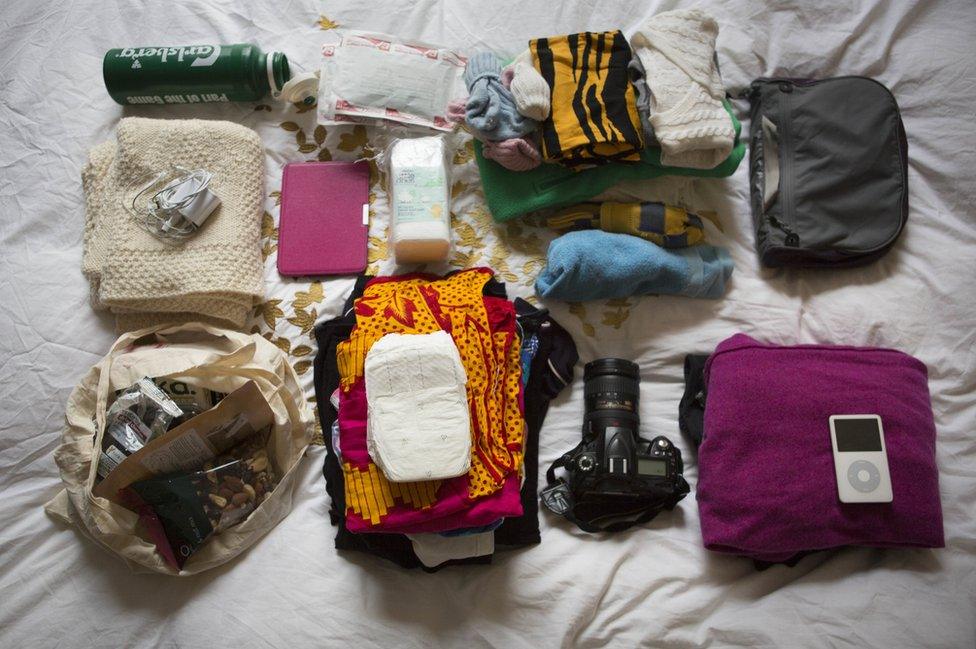In pictures: Inside the maternity bags of expectant mothers
- Published
Photographers working for the charity WaterAid took a peek inside the maternity bags of expectant mothers around the world. The decision on what to take is in part dictated by whether the hospital has clean water.

Ellen, Malawi
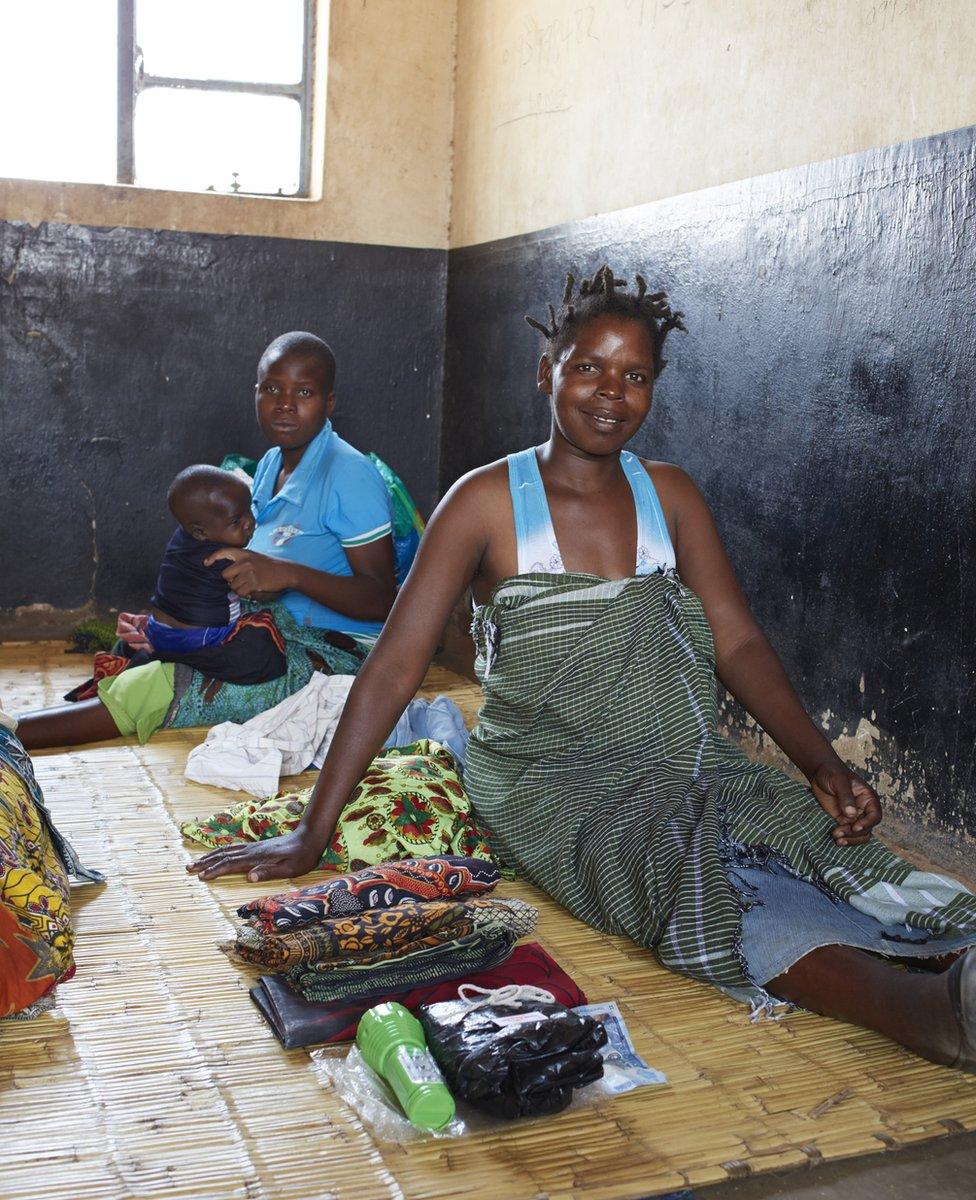
Ellen gave birth in Simulemba Health Centre, which delivers more than 90 babies a month but has:
no clean running water
no sterilisation equipment
no electricity
four toilets for 400 people
a crumbling shower block with no doors or roof
Her maternity bag includes:
a torch
a black plastic sheet, to put on the delivery bed
a razor blade to cut the umbilical cord
string to tie the umbilical cord
a 200 Malawian kwacha note for food
three large sarongs for her to wear during her stay, which could be as long as four weeks, and to wrap the baby in
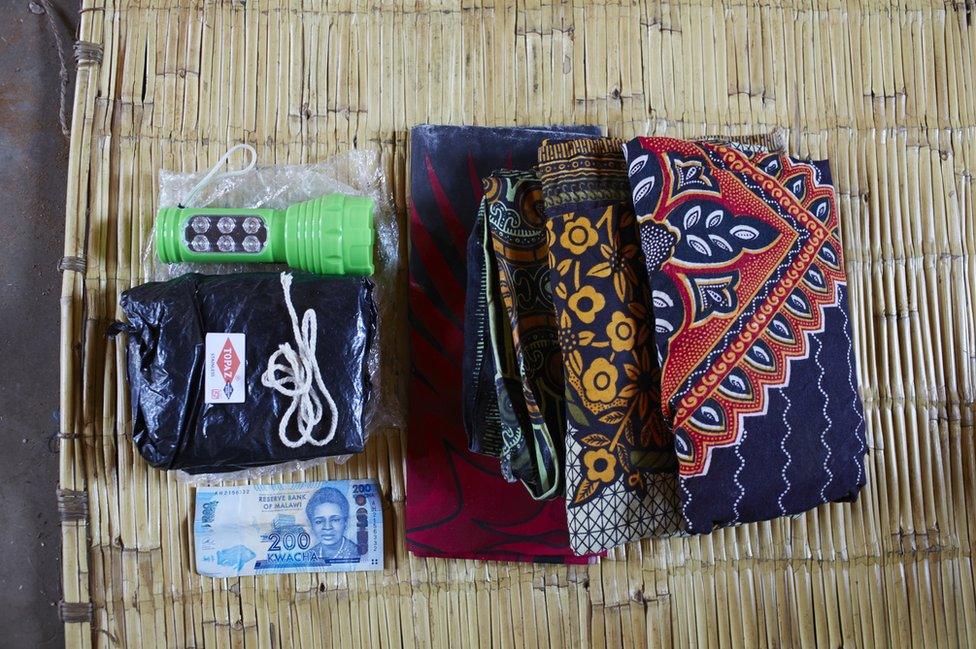

Deanna Neiers, USA
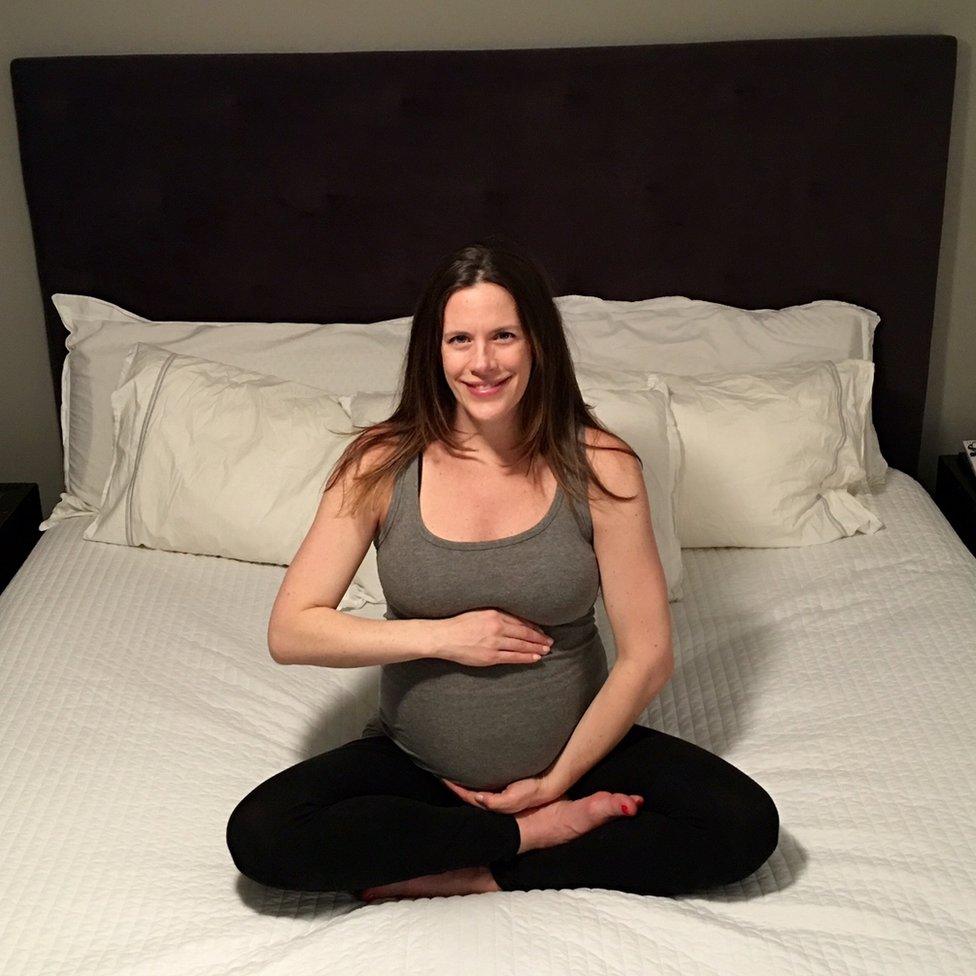
Deanna lives in New York City.
This will be her first baby.
Her maternity bag includes:
a music player
coconut massage oil
lavender oil
Arnica gel
snacks
a nursing bra and pads
a nursing pillow
comfortable clothes for her
a soft swaddle blanket
a long-sleeve onesie
a knitted hat
"I feel so happy nurturing this life inside of me, it truly is a miracle. I also am very fortunate to live within walking distance of one of the best hospitals in New York City. Being pregnant certainly heightens your awareness of how fortunate we are to have access to great birthing facilities and clean water.
"You want the best for your baby, and it's devastating to think about dangers such as contaminated water and unhygienic facilities. I imagine a world where all women have a safe, clean place to birth their babies."
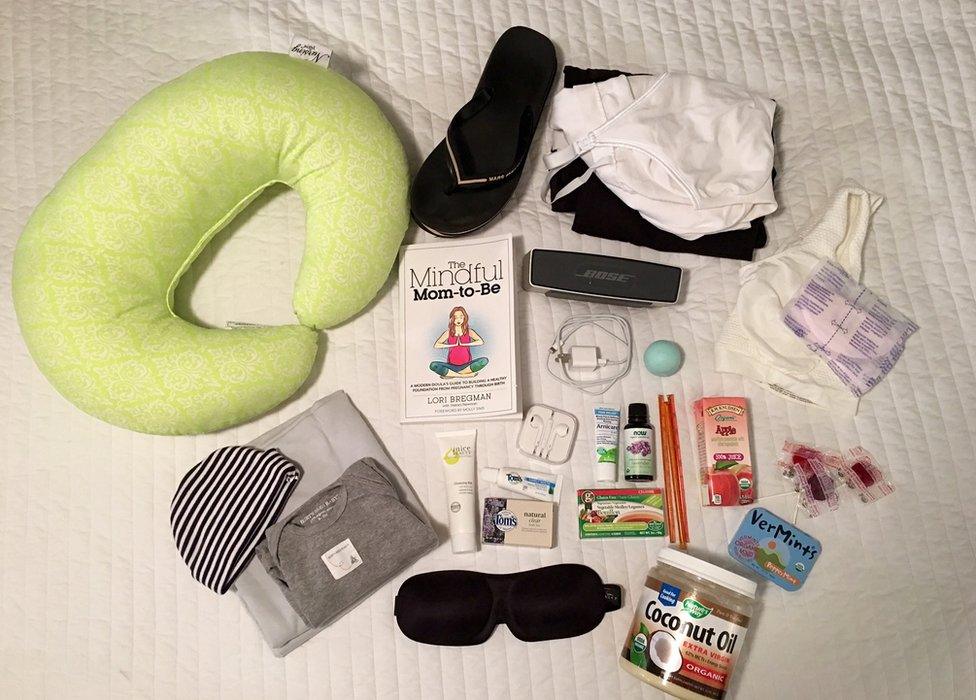

Takako Ishikawa, Japan
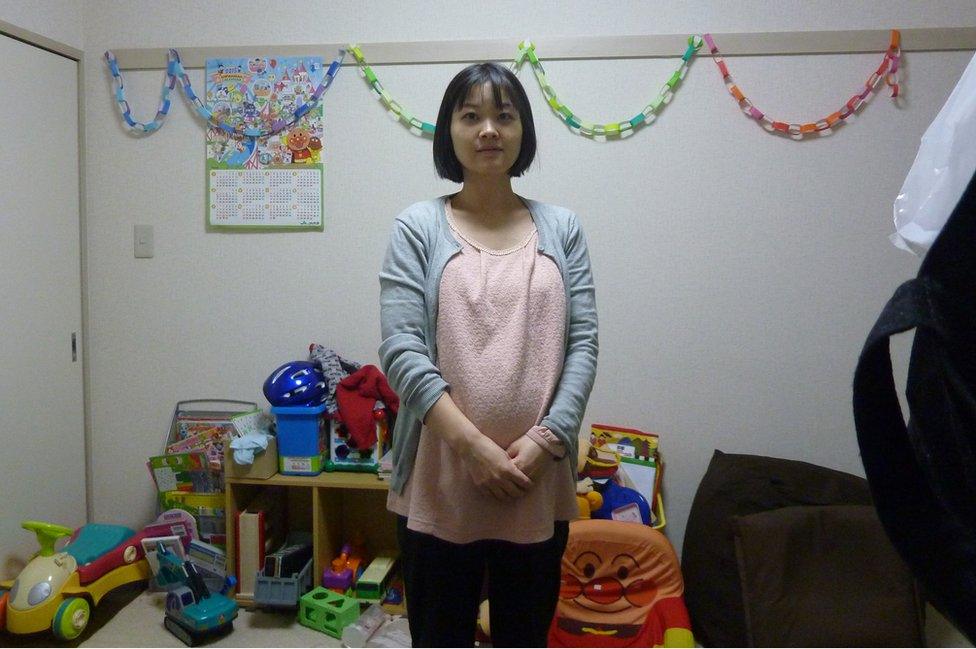
Her maternity bag includes:
her insurance card
her hospitalisation consent form
her blood-transfusion consent form
her patient's registration ticket
her mother-and-child health-record notebook
her personal seal impression, for official documents
a crop-top bra, for breast-feeding training
maternity shorts
shampoo
a toothbrush
tissue paper
baby clothes
"When I gave birth for my first child, I had to take diaper, baby wipes, maternity shorts and my pyjamas, but this time at a different hospital those items are all included in the hospitalisation fee. It would be helpful since I do not have to worry about washing my pyjamas."
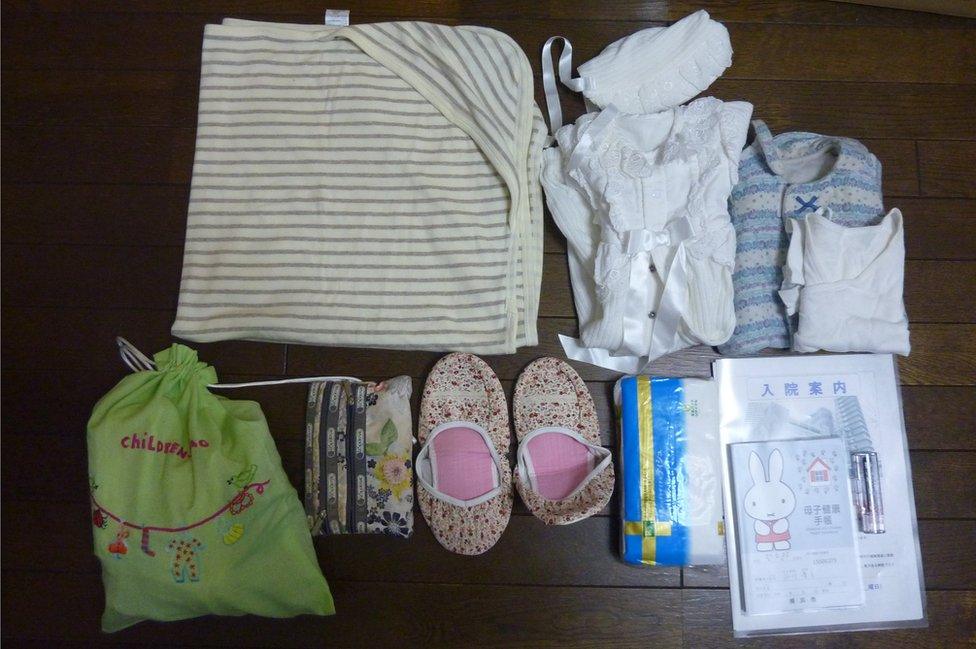

Hazel Shandumba, Zambia
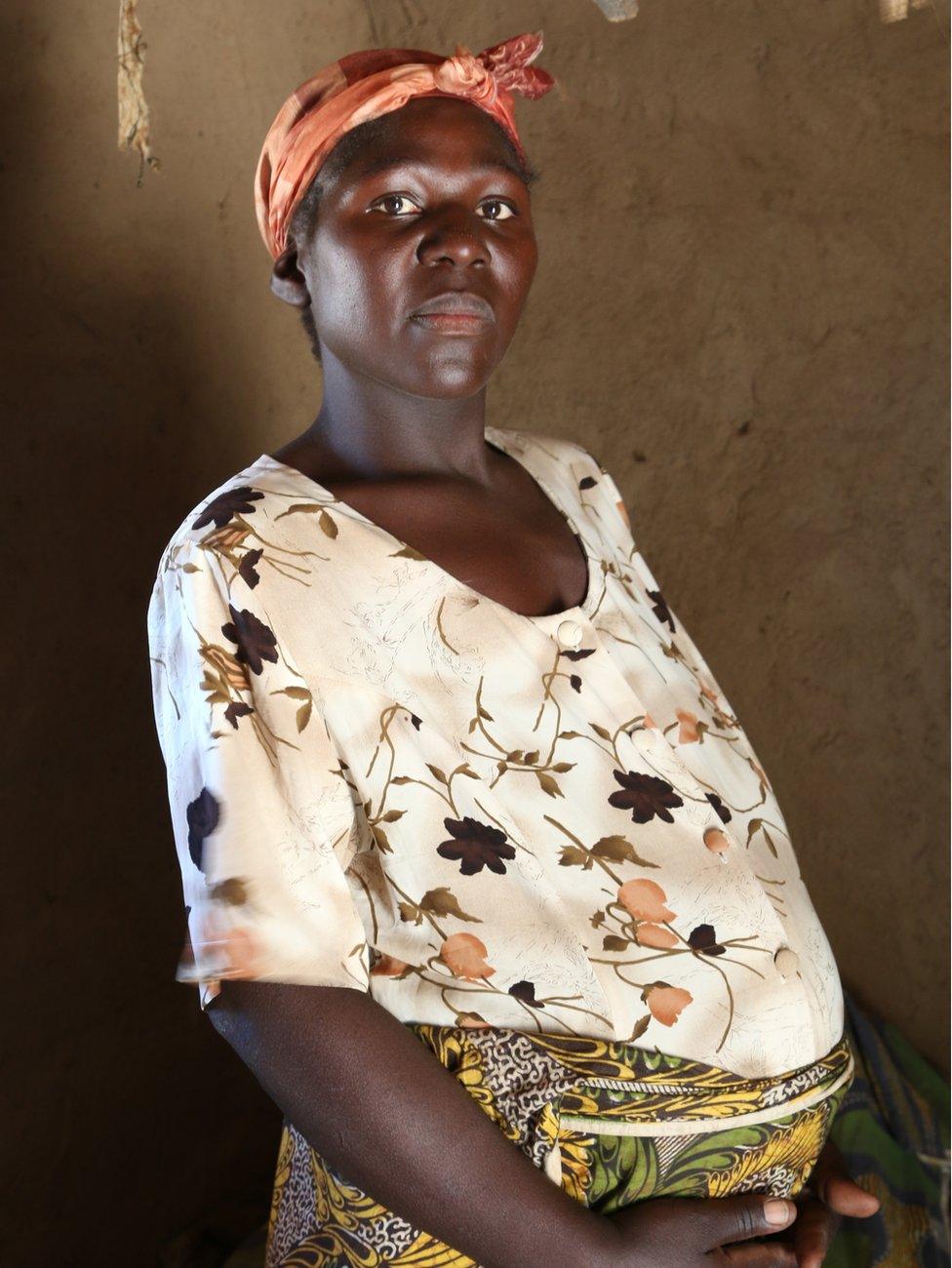
Hazel, 27 is from Hamakando Village, in Monze District, in Zambia.
Her maternity bag includes:
a sarong
cotton wool
napkins
a water dish, for washing
a polythene roll to put on the delivery bed
a baby blanket
a baby suit
"We have a borehole at the clinic, but there is no running water in the maternity ward.
"I have heard elderly women telling different do and don'ts for a pregnant woman like me.
"One of the things I was told is not to sleep too much during daytime. I was told if I do, the baby would also sleep at the time of delivery.
"I am not supposed to stand in the doorway because the baby will do the same while being delivered and will delay.
"The other thing I was told is not to put a scarf or necklace around my neck during pregnancy because the baby's umbilical cord will wrap around the neck. It's the same with a wrap around my waist."
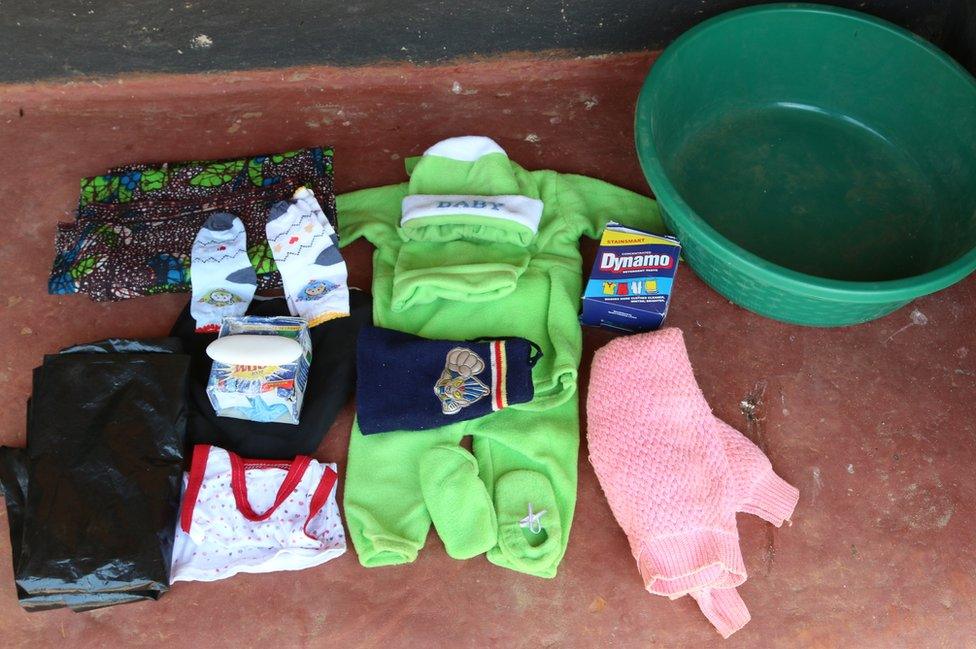

Joanne Laurie, UK
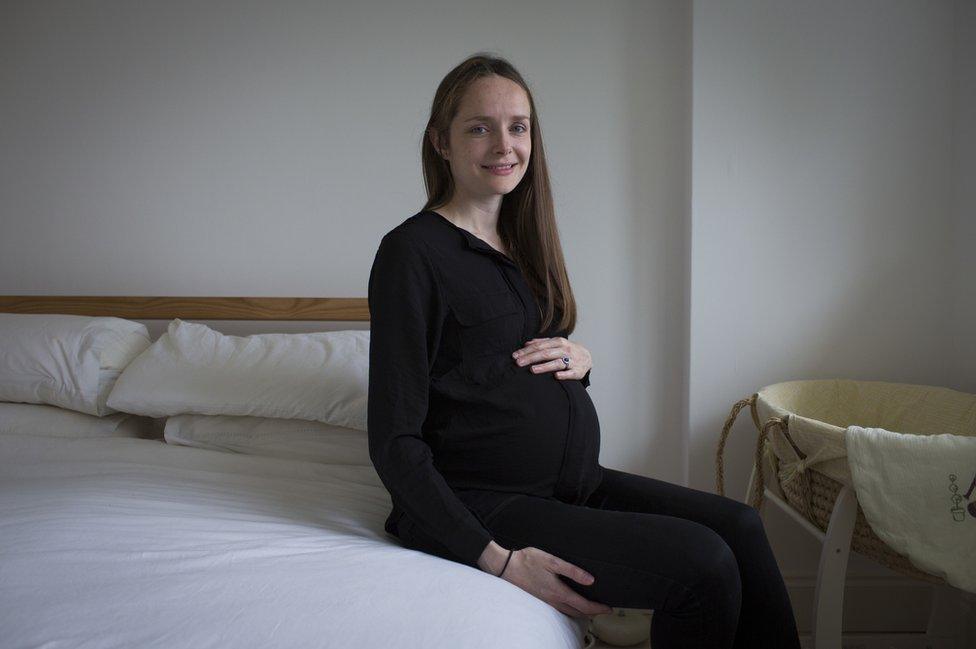
Joanne, 34, lives in London, and is expecting her first baby.
Her maternity bag includes:
lots of snacks
clothes
towel
toiletries
maternity pads
a transcutaneous electrical nerve stimulation (Tens) machine
an iPad
a water bottle
medical notes
nappies
little white clothes for the baby
some knitted trousers
a blanket
"I have packed a water bottle, my sister suggested to bring something to make it easier to drink during labour.
"I will bring it empty, and I assuming the hospital will have somewhere I can fill it. They must have a water fountain. I am taking that for granted, unlike people in Africa.
"The most important thing in the bag is the blanket my mum gave me to bring the baby home in, the same one my mother brought me home in."
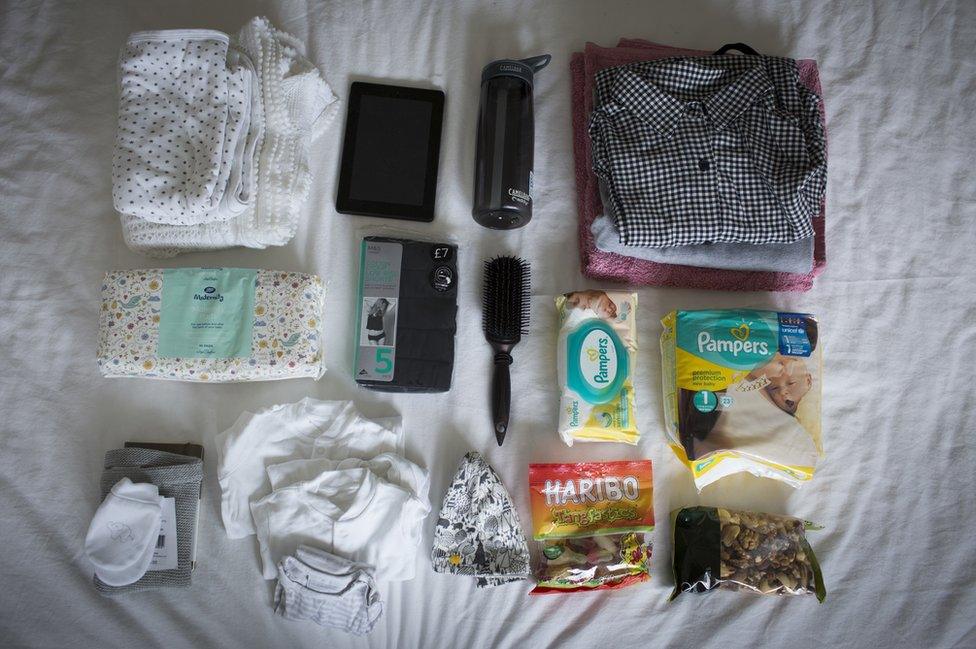

Kemisa Hidaya, Uganda
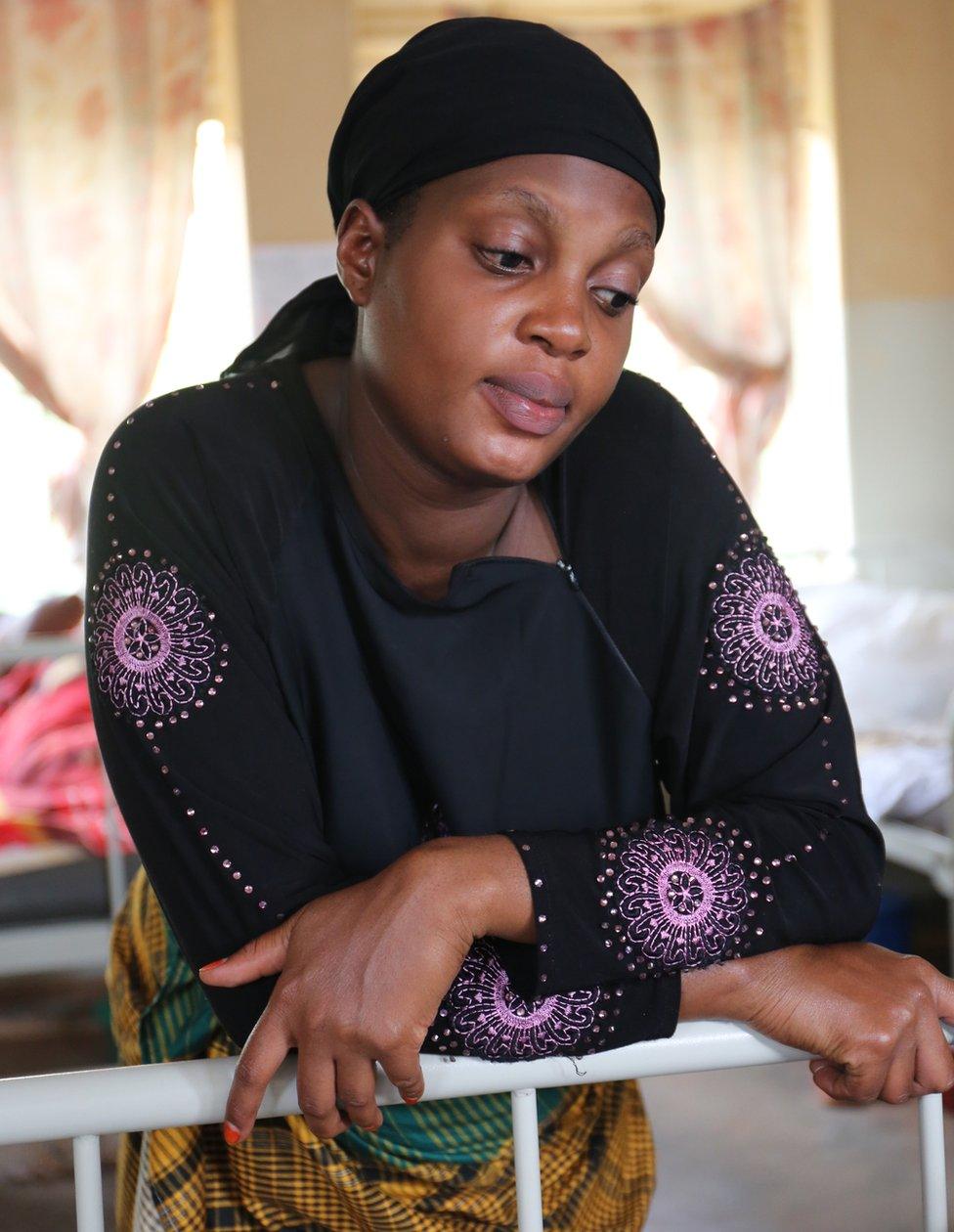
Kemisa Hidaya, 27, gave birth at the Kawaala Health Centre III, a public health centre owned by Kampala Capital City Authority, where the services are free of charge.
In preparation for her child's delivery the midwife gave her a list of things to bring:
two nylon sheets to spread on the bed during childbirth
10 pairs of gloves, but I only bought two because I did not have money to buy 10
a pair of new razorblades for use during the childbirth process
cotton wool roll for padding and cleaning blood in the process of delivery
washing soap powder for cleaning the labour room after delivery
a bottle of Jik disinfectant
a bucket and basin for bathing and urination
a flask for hot drinking water and cups
a roll of toilet paper
a baby receiver to cover the baby
nappies
bedding for use while in the hospital
emergency money
"In addition to the things demanded by the midwife at the hospital, there are others I bought specifically for my baby, and these include a pair of bed sheets for the baby, baby sweater, a cap to cover the head and body stockings.
"Among all these, my favourite thing is the baby receiver and the sweater because they will provide enough warmth for my baby.
"I have been here for just a day, but the toilets are clean and the labour ward has been cleaned twice.
"I can't imagine giving birth in a place without enough water; childbirth involves lots of blood which needs to be cleaned. Without enough water during childbirth, both the mother and the child can get infections due to dirty hands or environment.
"We don't have piped water connections in our home, but we buy from a nearby public stand pipe at 100 shillings [2p] for a 20-litre [five-gallon] jerrycan. The water tap is very near. For the most part I didn't have any problems with collecting the water - not until the last stages of my pregnancy, when I became so weak."
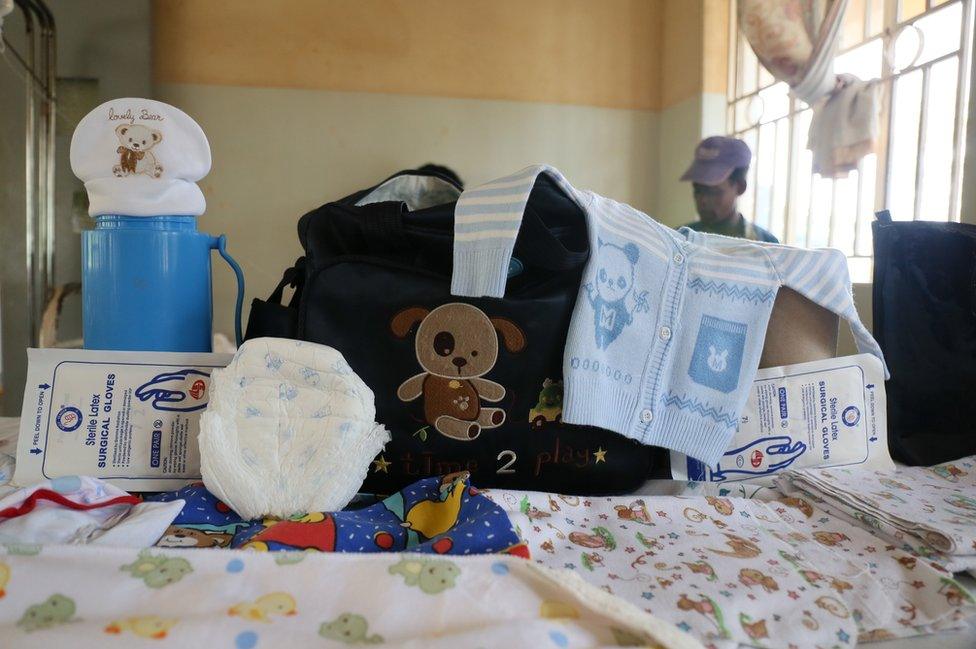

Cathelijne Geuze, UK, but from the Netherlands
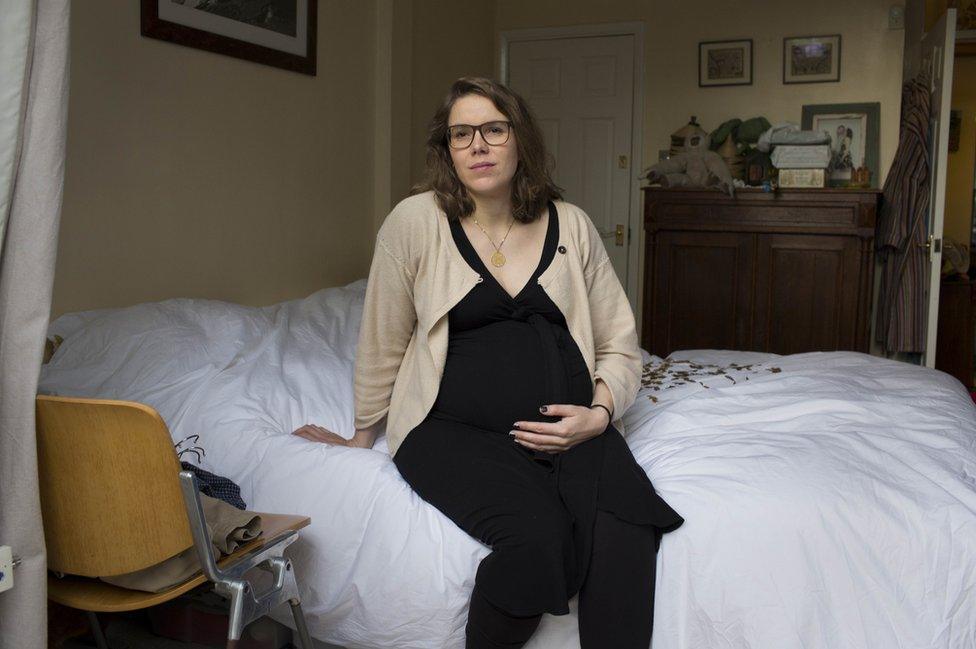
Cathelijne Geuze is from the Netherland but now lives in the UK.
Her maternity bag includes:
clothes for baby
my clothes
nappies
lots of snacks
an e-reader
an iPod
a water bottle
a camera
"I packed comfortable things for myself, the baby does not need much when its born. I know they have everything at the hospital, but you have to ask for them so it is easier to bring them. The most special thing in the bag is the hand knitted blanket my aunt made, my mother bought the yarn and my aunt knitted it. It was the first thing I found to pack."
